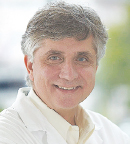Primary analysis of the JULIET trial adds to mounting evidence that chimeric antigen receptor (CAR) T-cell therapy is effective for the treatment of lymphoma in patients with no other good treatment options. A single infusion of CAR T cells (CTL019) achieved durable remissions in almost 40% of adult patients with relapsed/refractory diffuse large B-cell lymphoma (DLBCL), reported investigators at the 2017 American Society of Hematology (ASH) Annual Meeting & Exposition.1
The primary analysis of JULIET confirms the durable benefit of CAR T-cell therapy previously observed in a smaller, single-center trial at the University of Pennsylvania, reported online in The New England Journal of Medicine to coincide with the ASH meeting.2
Tisagenlecleucel (Kymriah) is the first CAR T-cell therapy approved for clinical use in B-cell acute lymphocytic leukemia (ALL). The JULIET results suggest it will soon be approved for relapsed/refractory lymphoma, joining axicabtagene ciloleucel (Yescarta), which is already approved in this setting and has been studied in the ZUMA-1 trial.3
“JULIET shows the feasibility of global distribution of CAR T-cell therapy using cryopreserved apheresis and central manufacturing. If this therapy is approved, the sponsor is gearing up for large-scale production for DLBCL in 2018,” said lead author Stephen Schuster, MD, of the Lymphoma Program at the University of Pennsylvania Abramson Cancer Center, Philadelphia.

All patients in complete response remained in complete response at a median follow-up of 29 months. This is in the context of an expected median survival of 4 months, showing that CAR T represents a breakthrough therapy in a setting with a large unmet need.— Stephen Schuster, MD
Tweet this quote
Patients with refractory DLBCL, or DLBCL relapsed within 12 months of autologous stem cell transplant, have a very poor prognosis with a short survival of a median of 4 months. The standard of care for relapsed DLBCL is high-dose chemotherapy followed by allogeneic stem cell transplantation. “Out of 100 patients, only 50% will be transplant-eligible and go on to transplant, and of those 25 patients, only 10 will be cured and the other 15 will relapse—leaving around 90 patients with no good treatment options,” Dr. Schuster explained.
In the single-center, phase II study reported online in 28 adult patients with relapsed/refractory DLBCL or follicular lymphoma, the objective response rate was 64% and the complete response rate was 57%. In the DLBCL cohort of 14 patients, the objective response rate was 50% and the complete response rate was 43%.
“Importantly, all patients in complete response remained in complete response at a median follow-up of 29 months,” Dr. Schuster said. “This is in the context of an expected median survival of 4 months, showing that CAR T represents a breakthrough therapy in a setting with a large unmet need.” Dr. Schuster said.
JULIET Details
JULIET built on the single-center University of Pennsylvania trial, expanding the research to 27 sites in 10 countries on 4 continents. T cells were collected from each patient and manufactured at two sites, one in the United States and one in Germany. Turnaround time was about 22 days. This shows that the therapy is “exportable,” Dr. Schuster pointed out.
The study enrolled 147 patients, 99 of whom received the CAR T-cell infusion. At the ASH meeting, Dr. Schuster reported findings for 81 patients treated with CAR T cells manufactured in the United States and followed for at least 3 months.
At 3 months, the overall response rate was 38% and the complete response rate was 32%. At 6 months, the objective response rate was 37% and the complete response rate was 30%. Almost three-quarters of patients were relapse-free at 6 months. The median duration of response and overall survival were not reached. No patient proceeded to transplant while in response.
“What is important is the objective response rate at 3 months, because most of those patients will stay in remission for years. I anticipate we will continue to see durable responses at 3 years,” he stated.
Safety Profile
Adverse events of special interest were evaluated in 99 patients. Cytokine-release syndrome of all grades occurred in 58%, with grade 3/4 cytokine-release syndrome in 23%. Neurologic events occurred in 21%, with grade 3/4 -neurologic events in 12%. Prolonged cytopenia was reported in 36%, with grade 3/4 in 12%. Infections occurred in 34%, with grade 3/4 in 20%. Febrile neutropenia developed in 13%, and all cases were grade 3 or 4.
CAR T-CELL THERAPY IN LYMPHOMA
- CAR T-cell therapy achieves durable responses at 6 months in almost half of all relapsed/refractory DLBCL patients with no other good treatment options and a median life expectancy
of 4 months. - These responses are expected to persist
for years. - CAR T-cell therapy is exportable to other centers and can be given as outpatient therapy to some lymphoma patients.
No deaths were reported due to treatment, cytokine-release syndrome, or cerebral edema. Twenty-six patients (26%) received CAR T-cell therapy on an outpatient basis, and 20 of 26 (77%) remained outpatients for at least 3 days following infusion.
“This suggests it is possible to give CAR T-cell therapy on an outpatient basis,” Dr. Schuster said.
“[Tisagenlecleucel] is the same product approved for pediatric and young adult ALL. It produces a high percentage of durable responses in patients with relapsed/refractory DLBCL. Manufacturing of the product took 23 days, cutting it down from 30,” he said.
Optimizing Response, Toxicities, Economic Burden
An editorial in the same issue of The New England Journal of Medicine that published the results of the Penn and ZUMA-1 trials called attention to toxicities, the cost of CAR T-cell therapy, and the fact that about 50% of patients don’t respond.4
“[A]pproximately half the patients with refractory or relapsed large B-cell lymphomas will not have a durable response,” wrote the authors. They noted that approaches to jump-starting responses include using CARs that target different B-cell antigens to combat CD19 loss and optimizing the design using co-stimulatory domains.
“These two studies reinforce the risks of unique and often serious toxic events that have been observed in earlier trials [namely cytokine-release syndrome and neurologic events],” they noted.
Despite being “a revolutionary treatment for patients with advanced blood cancers,” CAR T cells come with “substantial economic challenges…. Policies will need to be developed to ensure that patients receive these potentially curative therapies,” they wrote.
The estimated cost of a single CAR T-cell infusion ranges from $375,000 to $475,000. ■
DISCLOSURE: Dr. Schuster has been a consultant for Novartis, Celgene, Genentech, Janssen, Gilead, Seattle Genetics, Dava Oncology, Merck, Pharmacyclics, and Nordic Nanovector; has received research funding from Novartis, Celgene, Genentech, Janssen, Seattle Genetics, Pharmacyclics and Merck; is on the advisory board of Celgene, Genentech, Gilead, Merck, Novartis, Nordic Nanovector, Pharmacyclics, Janssen, and Seattle Genetics; and is on the steering committee of Celgene and Pharmacyclics.
REFERENCES
1. Schuster SJ, Bishop MR, Tam CS, et al: Primary analysis of JULIET: A global, pivotal, phase 2 trial of CTL019 in adult patients with relapsed or refractory diffuse large B-cell lymphoma. 2017 ASH Annual Meeting. Abstract 577. Presented December 11, 2017,
2. Schuster SJ, Svoboda J, Chong EA, et al: Chimeric antigen receptor T cells in refractory B-cell lymphomas. N Engl J Med 377:2545-2554, 2017.
3. Neelapu SS, Locke FL, Bartlett NL, et al: Axicabtagene ciloleucel CAR T-cell therapy in refractory large B-cell lymphoma. N Engl J Med 377:2531-2544, 2017.
4. Tran E, Longo DL, Urba WJ: A milestone for CAR T cells. N Engl J Med 377:2593-2596, 2017.


